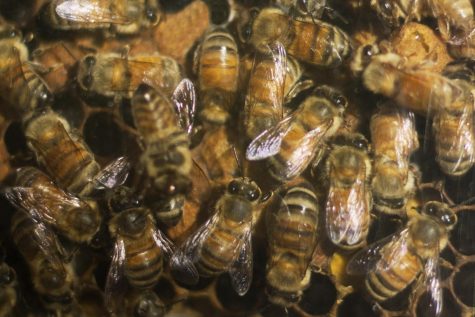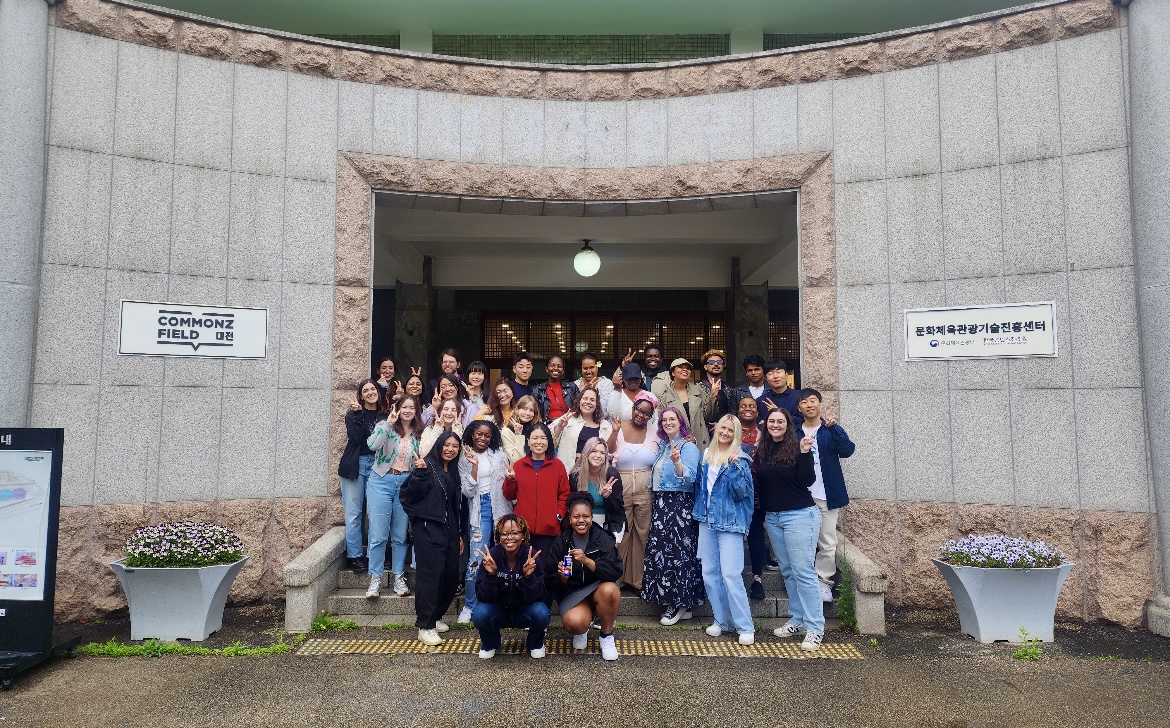[embedyt] https://www.youtube.com/watch?v=3ZEOZYJTSiQ[/embedyt]
Video by Carly Kramer.
When she’s not grading papers on the theory of existentialism, UNF Philosophy teacher Meghan Orman can be found doing quite the opposite — beekeeping. Orman beekeeps out of her backyard and she recently spread her passion to attendees at her beekeeping workshop at the Ogier Gardens.
Not only did students walk away with the knowledge that queen bees lay up to 2,000 eggs in a day, they also learned about how they can help in the preservation effort of the bee community.
In case you’ve been living under a rock for a while, bees are in trouble. Which bees in particular, you ask? Mostly bees native to the United States: native bees include bumble bees, carpenter bees, and sweat bees to name a few. These bees nest underground, making them victims to pesticides. Orman recommends that people leave a section of their yard untouched by pesticides and fertilizers to ensure that native bees can be safe, happy, and healthy.
Orman’s beekeeping journey began with two hives in her backyard. Eventually, the hive count grew to six. Sadly, she lost two after that. This is due to a process called gross loss, and Orman actually gained two more hives than she started with. She says that this is something that we usually don’t notice. With loss, there will usually be a gain. While there is still a problem on our hands, we can’t ignore the progress that is being made.

In fact, America is not in danger of losing honeybees. Native to Europe, these fuzzy little cuties will only pollinate one kind of flower. Plus, they sacrifice their own life to sting you! How self-effacing, right?
Currently, the greatest threat to bees is the mite, a tick-like bug that lives underground. However, it’s still important to consider how we as humans can take action.
Recently, bee colonies have seen an increase of about one percent. Despite this, worker bees will typically live for four to six weeks, with the main cause of death being exhaustion. Let’s hear it for hard work!
Bees contribute so much to nature and our environment would completely change without them. If you are interested in learning more about beekeeping, you can visit the Jacksonville Beekeeper’s Association at www.jaxbees.com.
Aristotle once said that “friendship is a single soul dwelling in two bodies.” Think of the other half of your soul dwelling in a bee. Think of what you can do to save your friend.
—
For more information or news tips, or if you see an error in this story or have any compliments or concerns, contact editor@unfspinnaker.com.















